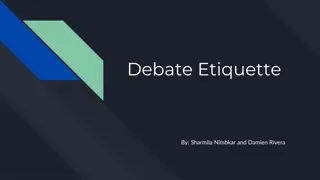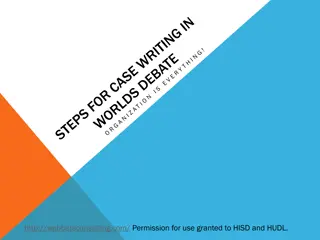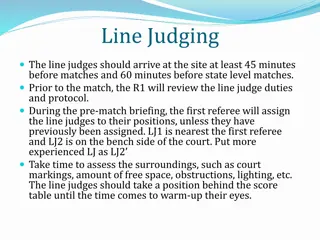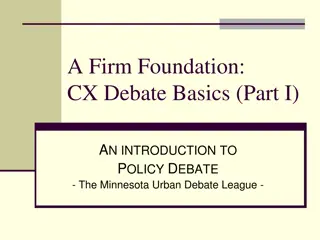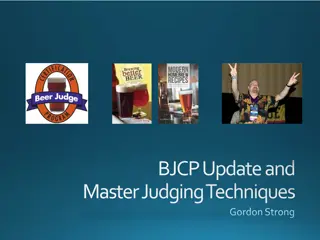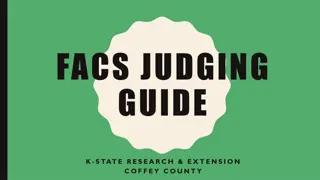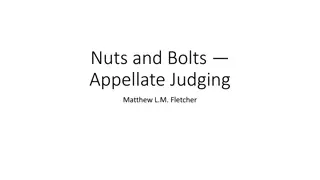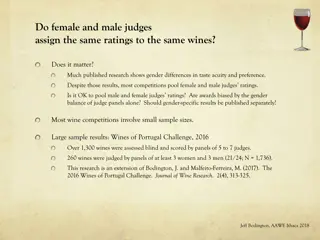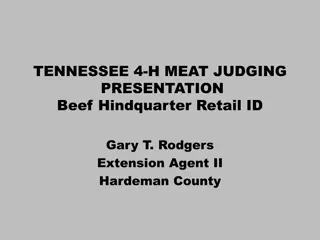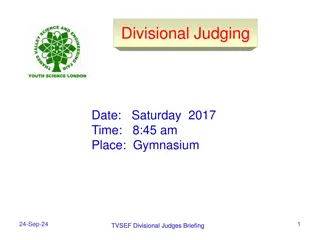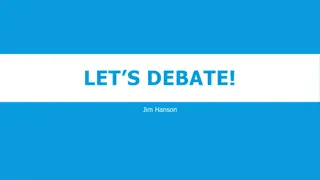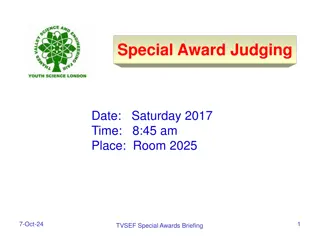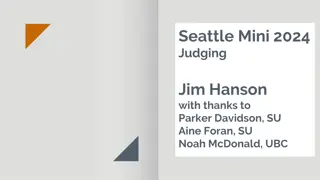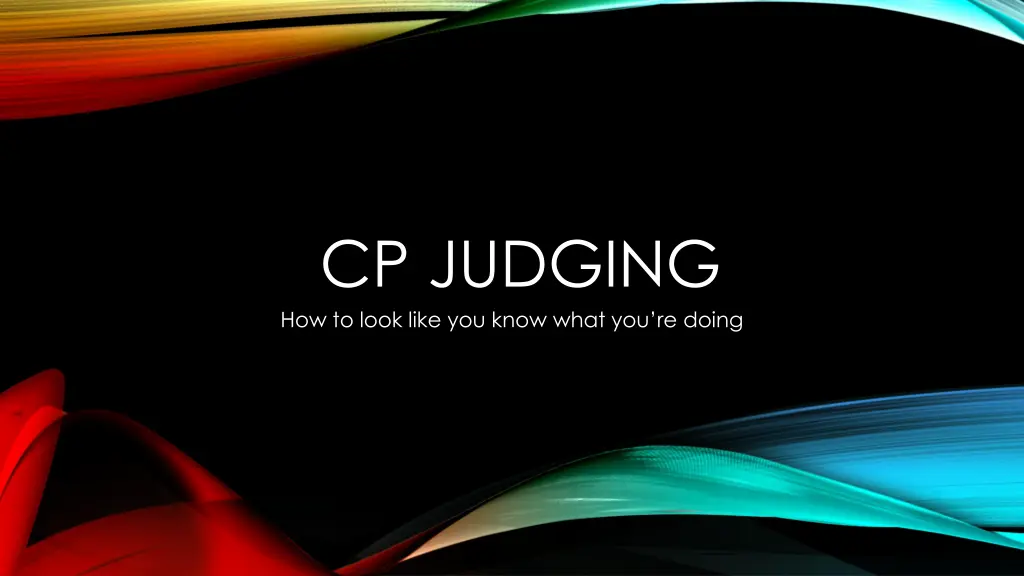
Effective Judging in Competitive Debates
Learn how to appear confident and knowledgeable when judging competitive debates, focusing on evaluating arguments, avoiding bias, and making fair decisions. Gain insights on judging cases, evaluating burdens, and handling tight cases to enhance your judging skills.
Download Presentation

Please find below an Image/Link to download the presentation.
The content on the website is provided AS IS for your information and personal use only. It may not be sold, licensed, or shared on other websites without obtaining consent from the author. If you encounter any issues during the download, it is possible that the publisher has removed the file from their server.
You are allowed to download the files provided on this website for personal or commercial use, subject to the condition that they are used lawfully. All files are the property of their respective owners.
The content on the website is provided AS IS for your information and personal use only. It may not be sold, licensed, or shared on other websites without obtaining consent from the author.
E N D
Presentation Transcript
CP JUDGING How to look like you know what you re doing
THE BASICS Worry not, it s a lot like BP debate Your job is to decide, based on arguments, who argued their case better/was more convincing. Judge the case you saw, not the case you wish you saw. Even if the case was dumb. And sometimes it will be. Facts don t matter.
BEFORE YOU BEGIN Take very good notes, in whatever style works for you. Check your accent bias and leave your opinions at the door. Don t insert yourself it s especially difficult here - and suspend your disbelief just a little. Style does not matter unless they are incoherent.
JUDGING ARGUMENTS If it didn t happen, it doesn t matter Conceptions of the world, or of the problem do you buy them? Impacts Do they have them? How big are they? Mechanisms Do they show you how it happens Linkages. Do your arguments actually prove your case/fix your problem? Is your world actually better?
JUDGING ARGUMENTS - OPPOSITION Opp s job is refutation, but having construction is good too. Does their refutation attack the meatiest parts of the government case? Is it convincing, and are the linkages made? How does the government respond to that refutation? This will not do what you think it does is absolutely valid. This is impossible because x thing fiated in the model doesn t exist is not. It will be expensive is dumb and should be avoided.
JUDGING CASES - BURDENS Here s where it gets hard. Judge on arguments first. Tight cases Cases unwinnable on gov yes, they exist. Trivial cases Who moves the ball farther? Not just how much they take on, but if they prove it. Philosophical cases
TIGHT CASES A tight case is a case that is not winnable for the opposition, for whatever reason this includes equity violations, overly specific opps, and inaccessible opps. A competent judge will penalize the government for bringing one. Opposition should still call it, and can lose a round if they don t. If your case isn t tight, but you run the lowest possible impact version of that case, you will lose. Nonsensical cases not fantastical, but sheer what the fuckery. Cannot be fiated in later.
TECHNICAL ASPECTS Weighing and comparing points Weighing in general Response speeches and role fulfillment Consistency Factual inaccuracies Equity violations
TOURNAMENT-SPECIFIC How to give good feedback/contribute to the discussion What a good chair does Expressions Judge feedback an interjection from your Tabs and CA teams.


